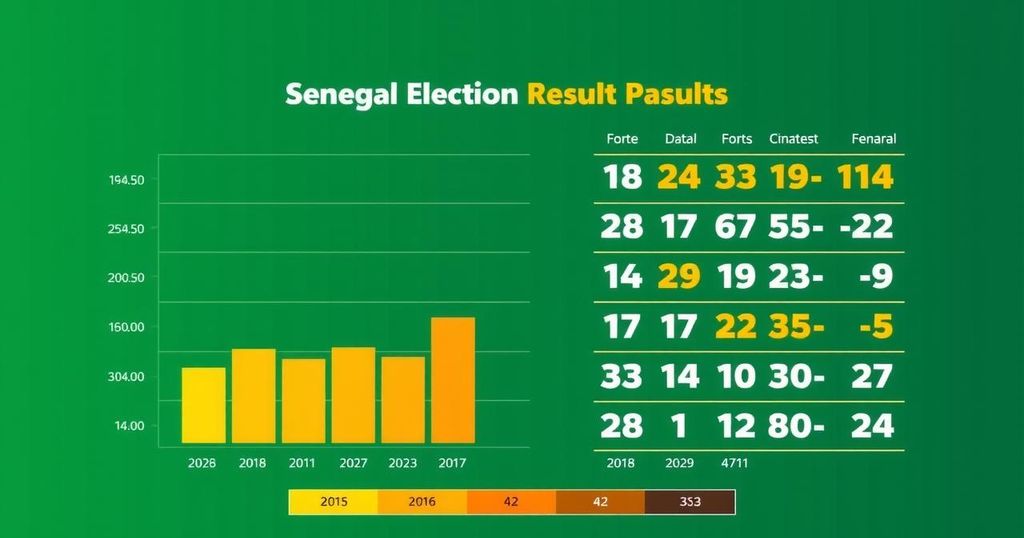Senegal Legislative Elections: Pastef Declares Significant Victory

Senegal’s government has reported a decisive victory for the Pastef party in parliamentary elections, potentially enabling President Faye to implement his reform plans. Opposition leaders conceded the election, while the full results are pending. Despite the victory, the new administration will face challenges such as unemployment and public financial stability.
The Senegalese government has proclaimed a substantial victory in the recent parliamentary elections, indicating that the ruling party, Pastef, has secured a commanding majority. This triumph would empower President Bassirou Diomaye Faye to pursue his ambitious agenda for economic and social reform, initially laid out during his electoral campaign in March. Following the election, opposition leaders such as former Prime Minister Amadou Ba and Dakar’s mayor, Barthelemy Dias, conceded despite counts still being finalized. Official election results are anticipated shortly. The electoral process unfolded peacefully across Senegal, although minor skirmishes among party supporters were reported leading up to the vote. Government spokesman, Amadou Moustapha Ndieck Sarre, expressed gratitude to the Senegalese populace for the mandate granted to Pastef. However, the specific number of seats won by Pastef has not been disclosed. To achieve a majority in the 165-seat National Assembly, Pastef requires 83 seats. In recent months, President Faye and Prime Minister Ousmane Sonko have encountered obstacles in advancing their reforms within a parliament largely dominated by opposition forces. Sonko, who was previously barred from presidential candidacy, was appointed Prime Minister shortly after Faye assumed office. Faye and Sonko’s campaign centered on an Afrocentric and nationalist framework, emphasizing a shift in Senegal’s historic ties with France, the nation’s former colonial ruler. Recognized as Africa’s youngest elected leader at age 44, President Faye has pledged reforms aimed at economic progress, social equity, and fierce anti-corruption measures that have particularly resonated with the country’s youth. Nevertheless, the new administration may still confront significant hurdles amid a backdrop of high unemployment and precarious public finance. Former President Macky Sall, who leads an opposition coalition from a distance, has leveled accusations of “massive electoral fraud” against Pastef, although he has yet to present substantive evidence underpinning these claims.
The legislative elections in Senegal are a pivotal event in the country’s political landscape, particularly following the election of President Bassirou Diomaye Faye in March. Faye’s ruling party, Pastef, seeks to implement a series of economic and social reforms that could reshape Senegal’s governance and its relationship with Western powers, notably France. The backdrop of this election is characterized by significant political fervor, with ongoing tensions between the ruling and opposition parties, particularly regarding allegations of electoral malpractice and governance challenges. These elections hold great importance, as they will enable the ruling party to either solidify its mandate or contend with a resistant legislative environment.
In summary, Senegal’s government declares a substantial victory for the Pastef party in the recent legislative elections, which could facilitate the passage of the President’s reform agenda. While former Prime Minister Amadou Ba and other opposition leaders have conceded, the specifics of the Seat allocations remain unreported as official results are awaited. Despite the excitement surrounding this electoral result, the challenges posed by high unemployment and fiscal instability remain pressing issues for the new administration. The unfolding political scenario will demand careful navigation to maintain public support and effectiveness in governance.
Original Source: www.bbc.com







